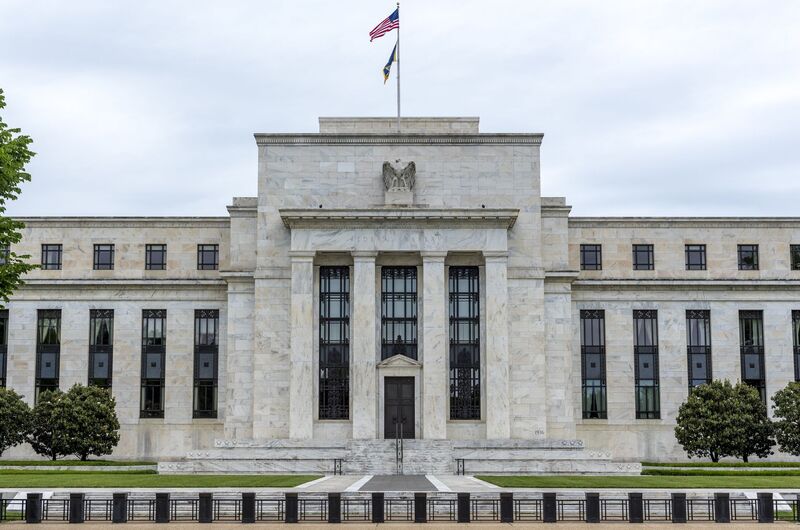
The US Federal Reserve (Fed) is set to wrap up its two-day meeting today, ending with Chairman Jerome Powell holding a press briefing – and with many expecting lack of action to follow, the Cryptoverse insiders see this as potential fuel for the rocket that’ll take bitcoin (BTC) and other cryptos to the moon. However, the meeting outcome may also lead to BTC retesting lower levels. Either way, it seems that the Fed will, in one way or another, impact the crypto markets.
Mati Greenspan, Founder of Quantum Economics, opined that “it would seem that inaction from central bank officials could very well send bitcoin and other cryptocurrencies straight to the moon.”
This comes after hedge fund billionaire Paul Tudor Jones said he’d keep an eye on what the Fed does today, and if it continues to talk down inflation and fail to take action, it will be “a green light to bet heavily on every inflation trade.”
Greenspan further noted that Jones “teas[ed] out” the (in)famous WallStreetBets subreddit group by “hinting that commodities would be a killer investment should the Fed allow inflation to run rampant.”
Many analysts estimate that the Fed is unlikely to take any policy actions, but is likely to signal which one’s it may (think to) take. It will release its quarterly economic forecasts, while it could boost its inflation forecast, and pencil in an initial rate hike in 2023, per CNBC. The 2023 inflation forecasts are being watched the most because the Fed would expect to raise interest rates then if inflation persists.
Also, JPMorgan economists expect several Fed officials to change their position and support a 2023 hike, while the Bank of America strategists do not expect an agreement on a 2023 hike.
All this comes as the producer price index (PPI), which measures the average prices of goods and services produced, rose 6.6% during the 12-month period ending in May. But some, like Kyle Bass, the founder of Hayman Capital, said that the actual inflation rate at this time is likely around 12%.
The meeting would therefore lead to a decision on whether to (and how to) start a necessary policy change that conflicts with the framework the central bank adopted recently to guide and signal monetary policy intentions, according to Mohamed El-Erian, an economic adviser at Allianz and the President of Queens’ College at the University of Cambridge.
But unless the Fed signals in the next few months that it would accelerate its reaction function, “the risk would increase that this [meeting] could end up being the calm before the storm instead of the solid foundation for the high, durable, inclusive and sustainable growth that is needed coming out of a tragic pandemic,” said the economist.
Another caricature, this one from @IntlEconomy, seeking to reflect the (quite widespread) notion that @FederalReserve policy has been captured by #markets
For those who don't know International Economy, this monthly publication provides good insights on economic and policy issues pic.twitter.com/8gfePgO8lB— Mohamed A. El-Erian (@elerianm) June 16, 2021
What is unlikely to happen, in his opinion, is the Fed “reducing exposure to a now more risky posture by moving forward with a partial pivot in light of the changed circumstances, thereby keeping their options open and better balancing risk” – instead, it will “most likely fall short of what is required and risk exacerbating the challenges it — and the economy — face in the longer term.”
While the Fed’s (and others’) projections expected a slower economic recovery and limited inflation, what we are seeing now, says El-Erian, is “a persistently much hotter inflation outlook and, with that, the need for an accelerated timeline.” On the other hand, the 2019 policy framework, encompassing a shift from forecast-based to outcome-based policy actions, would have provided the Fed with “a foundation for a warranted multiyear glide path for a very slow and orderly policy transition.”
El-Erian concluded that the policy transition will probably be delayed further and the longer the Fed delays “the greater the threat it will be forced to slam on the policy brakes down the road.”
According to him, it would increase the risk of both an economic recession and financial market instability, undermine economic and social well-being, complicate economic reforms and create adverse spillover effects for other countries, especially in developing countries.
(Photo : Gallery)

